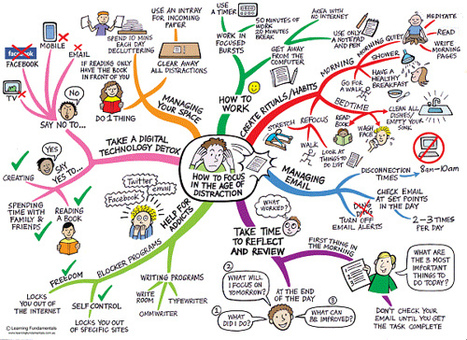This weekend I'm focusing on information, filtering and meaning overload and useful ways to manage and utilize it. Having said that, there's so much good information, insights and tips in this post, I have to digest it slowly.
Intro:
"The biggest difficulty I experience is the shifting from this forward flowing process of consuming, curating, and sense-making of content to learn versus to get something done".
Howard Rheingold calls this process managing your attention or “Infotention” and it is what he has been teaching in his courses.
Manage Your Attention, Not Just Your Time:
Don’t just create a to do list, lay it out on daily and weekly schedule, breaking down key tasks of the project to chunks.
Curated by Jan Gordon covering "Content Curation, Social Business and Beyond"
Read full article here: [http://bit.ly/z84mSv]
Via janlgordon, k3hamilton, Amanda McAndrew



 Your new post is loading...
Your new post is loading...










I am definitely going to get this book - your post is so full of great information and resources - so helpful, thanks.